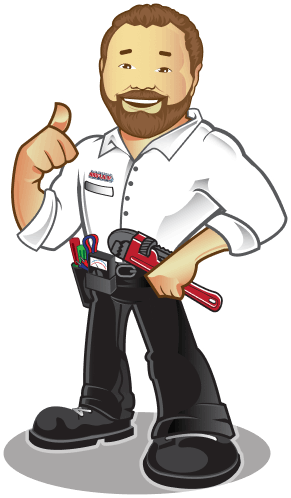Easy Fixes for 8 Common Electrical Problems
Nothing can ruin your day quite like repeated circuit breaker trips or a mysteriously dark lightbulb. Instead of watching your favorite show or reading a new book, you spend your evening poking around a circuit breaker box with your smartphone flashlight, trying to diagnose and fix some electrical issue without receiving a nasty shock…literally.
We’ve compiled tips on how to easily fix eight common electrical problems, so you can stop fiddling with wires and get back to your day.
1. Circuit Breaker Keeps Tripping
If a circuit trips not once but repeatedly, there’s a number of potential causes. Not to fear! Locate the circuit box and toggle the breaker to “off” before returning it to “on.” In many instances, a circuit may be overloaded. Redistribute plugged-in devices to electrical circuits with less demand to unburden your circuit. If the breaker continues to trip, you may have a short circuit, which involves broken and/or rogue live wires touching each other. If it doesn’t seem to be an overloaded circuit, we recommend calling a qualified electrician to identify and diagnose the possible short.
2. Frequent Bulb Burnouts
Make sure your light bulb has the correct wattage, is of decent quality, and is screwed in correctly. (Both “too tight” and “too loose” can cause issues!) If problems persist, there may be a loose or faulty wire. Remove power to the fixture and carefully remove the lighting fixture. Look for stripped or broken wires. If everything looks fine, replace the light fixture and bulb.
3. Frequent Electrical “Transients” (Power Surges)
High voltage irregularities are short-lived but can eat at your electronics’ life expectancy. Cheaply made electronics and old or faulty wiring are often culprits. Check your house for and unplug any low-quality electronics. If transients continue, there may be faulty wiring. Reach out to a qualified electrician for advice on how to proceed.
4. Outlet Not Working
First, try to really diagnose the problem. Plug other electronics into the offending outlet and check other outlets in the room for power. There could be a problem with the device or the electric. Losing power in multiple outlets often denotes an electrical issue. Check and reset applicable breakers as well. Temporary circuiting issues happen much more often than faulty outlets.
5. High Electric Bill
Not all electrical problems end in sparks—high heating bills can seriously dent your budget! If you’re unable to switch to a more cost-effective provider, there are still ways to decrease your bill. Eliminate cheap devices (as mentioned above—they can cause costly power surges!) and unplug devices when not in use; even when turned off, they still absorb power. If you have an electric water heater, try turning down the maximum temperature.
6. Lightning Strikes
Whoever said that “lightning never strikes the same place twice” is unfortunately incorrect. If your home has been struck before, it could happen again. If lightning storms are common in your area (especially if you live on a hill), consider installing a lightning rod and protecting important electronics with surge protectors. In the case of a lightning strike, these preventative measures can mitigate serious damage.
7. Flickering Lights
Flickering lights aren’t much fun outside of Halloween. To troubleshoot a flickering light, check the bulb and plug. Make sure the bulb is screwed in entirely and the plug is completely in the socket. Ask your neighbors if they’ve had any issues. Sometimes damaged power lines are to blame. Toggle “on/off” switches slowly to see if they correspond with the flickering. Lastly, an overloaded circuit could be the root of the problem. Check your home’s regular voltage with a voltmeter—you can pick one up at your local hardware store!
8. Electric Shocks
Electric shocks range from mildly unpleasant to fatal. To lessen the chance of shock, be exceptionally careful around open wiring and questionable circuitry. Also, when troubleshooting utility problems, know when to get an electrician involved. You can fix many problems yourself, but getting experts involved can save time, effort, your safety, and even money in the long run.
If you follow these eight simple fixes, you should be able to spare yourself some trouble. However, some electrical problems shouldn’t be fixed on your own. F.H. Furr is equipped to diagnose and fix any electrical problem, having over 80 years of experience under our belts. Contact us today, so we can help you with any electrical problems you might be facing. We look forward to serving you!














